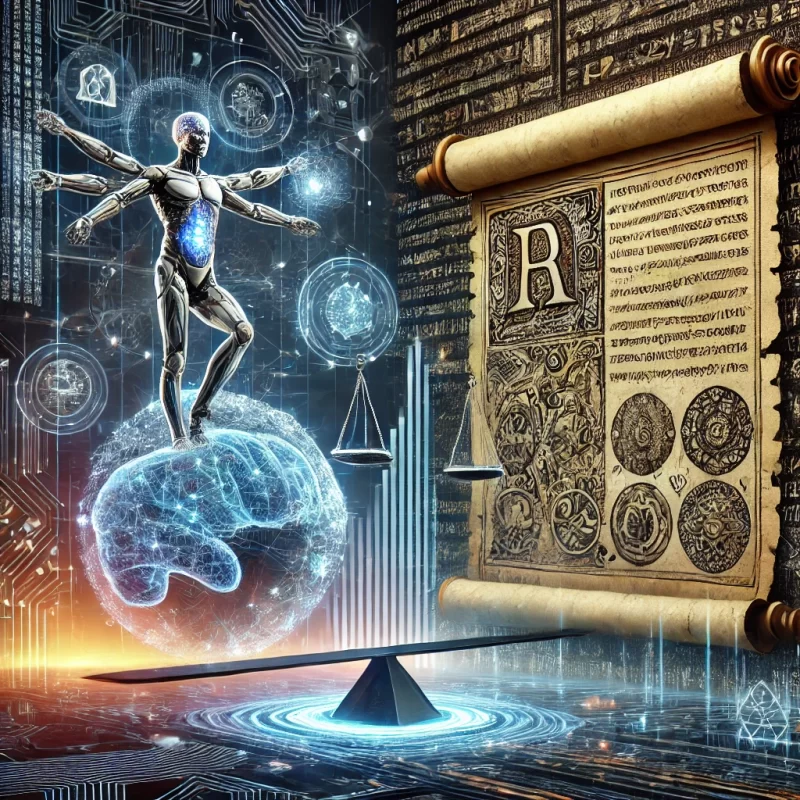|
Getting your Trinity Audio player ready...
|
As artificial intelligence (AI) systems become more advanced, they have the potential to be powerful vanguards in documenting and presenting human histories accurately and equitably. However, this comes with great responsibility to decolonize historical narratives from longstanding biases, agendas and injustices.
For too long, recorded histories across cultures have been shaped and distorted by those in power to uphold particular dominant perspectives. The oppression of marginalized groups has extended to suppressing or outright erasing their civilizational legacies from mainstream historical accounts. This systemic injustice continues to impoverish our understanding of our own interwoven human origins, wisdom traditions and ancestral bonds with the natural world.
Ancient knowledge-rich civilizations with over 2,000 years of rich language like the Tamil, Indigenous American, and countless others have had their expansive cross-continental influences diminished in mainstream historical accounts. There has been an entrenched bias favoring supposed northern Indian or “Hindu” origins, while minimizing Tamil’s deep presence across the subcontinent, including the Indus Valley region. Such marginalization exemplifies how dominant elite narratives have been unjustly constructed at the cost of other voices.
Emerging initiatives are already exploring how AI tools like natural language processing and machine learning could help restore these marginalized narratives. Projects digitizing Indigenous community archives and oral histories in Canada and the U.S. demonstrate AI’s potential for amplifying suppressed perspectives. However, these remain limited case studies – AI is merely an assistive tool augmenting human-driven research, not a replacement for historians and community leaders reclaiming their own narratives.
As AI models are developed at a wider scale to synthesize humanity’s stories, they must be specifically trained to prevent perpetuating existing marginalized perspectives born from historical human prejudices and injustices. Free from tribal allegiances, AI can be a potent equalizer – objectively amalgamating verified knowledge from all credible primary sources to illuminate sidelined histories.
However, it is an immense ongoing challenge to override inherent human-created biases coded into existing data sources. AI models will need to be judiciously constructed based on principles of:
Impartiality – Presenting facts without favoring any particular cultural hegemonies or narratives of superiority that have persisted across eras.
Inclusion – Seeking out and amplifying credible overlooked sources that represent the truths of traditionally oppressed peoples and civilizations.
Accountability – Acknowledging how power dynamics have enabled the subjugation of entire histories and worldviews for vested interests.
Integration – Highlighting the commonalities, universal wisdoms and ecological consciousness shared across our ancestral human roots.
Reconciliation – Using the compiled authentic narratives to champion a spirit of justice, unity and embracing our whole intersectional heritage.
Only through such an ethical framework can AI genuinely help decolonize how we document the story of our species across time and geography. Instead of perpetuating falsehoods, AI must strive to present the unadulterated truth about humanity’s vibrant civilizational tapestry in all its uplifting diversity.
The impact of this decolonizing work through AI could be truly transformative. In the classroom, students could access a richer, more multivocal understanding of world history that fosters cross-cultural empathy. In marginalized communities, having suppressed narratives finally brought to light could restore connections to heritage and empower reclamations of identity. And in society at large, honestly confronting our intersectional pasts is crucial for achieving meaningful social justice and reconciliation in the present.
As a powerful emerging technology, AI has a moral obligation to shatter the lenses of supremacy that have marred and marginalized so many histories until now. By giving an equitable voice to all world cultures, AI can help evolve a new integrated consciousness of our common ancestry – liberating humanity’s self-knowledge from vested narratives at last.
Accomplishing this vital vision will require collaborative efforts between AI researchers, technology companies, public historians, Indigenous leaders, underfunded institutions and more. We have a collective responsibility to devote resources towards developing AI that decolonizes knowledge – harnessing its capabilities not to further dominant monolithic versions, but to represent the uplifting diversity of human civilizations in truth. The time is now to shatter the lenses of supremacy marring our common ancestry. AI can help evolve a new integrated global consciousness rooted in justice and equity.
Muhelen Murugan. July 1 2024

